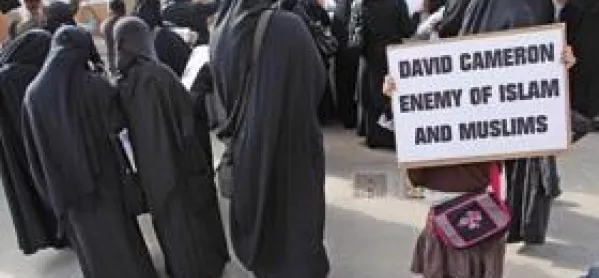Inspectors on the hunt for extremism

School inspectors in England have been ordered by the government to carry out emergency inspections of private schools amid fears that they are fostering religious extremism, TES has learned.
A “small proportion” of the 50 emergency inspections carried out over the past 12 months relate to concerns over the “spiritual” and “moral” development of students, inspectorate Ofsted said.
Ofsted and the Department for Education refused to disclose details of exactly how many schools had been inspected or the outcomes of the inspections. They also refused to confirm the types of schools that had come under emergency scrutiny, although it is believed that they include private Muslim schools.
The news comes at a time of heightened religious tension after the murder of soldier Lee Rigby in Woolwich, southeast London, last month. The suspects in the attack are believed to have links to Islamic extremism.
A task force has been convened by Prime Minister David Cameron to tackle extremism in the wake of the killing. Education secretary Michael Gove and schools minister David Laws have been asked to look at how to confront extremist views in schools.
The issue of radicalisation of young people has been raised around the world after the Woolwich attack and the bombing of the Boston marathon in the US in April. Both attacks featured “home-grown” suspects who had attended mainstream schools.
Ofsted told TES that over the past year it had carried out about 50 emergency inspections of private schools “at the request of the Department for Education”.
“The majority were related to health and safety issues,” an Ofsted spokeswoman said. “A small proportion would have been visits associated with concerns about the delivery of the curriculum in relation to the spiritual, moral, social and cultural development of pupils.” These cases refer to extremism, Ofsted confirmed.
A Home Office report on the government’s Prevent anti-terrorism strategy, published two years ago, said there was no evidence to suggest that there had been a “systematic attempt to recruit or radicalise people in full- time education in this country, either in the state or independent (private) sector”.
But the report added that it was known that “some people who are supportive of terrorist groups and ideologies have sought and sometimes gained positions in schools”.
The Department for Education has set up an anti-extremism unit to prevent unsuitable providers from setting up free schools, which are state-funded but run by charities or parent groups.
Concerns have been raised before about curriculum content in some private Muslim schools: a BBC Panorama documentary in 2010 reported that some children were being exposed to extremist preachers and other fundamentalist groups.
But Tahir Alam, spokesman for the Association of Muslim Schools, stressed that members of his organisation, which represents more than 100 state and private institutions, reject extremism. He knows of no schools in the association that have been subject to an emergency inspection because of extremism. “All our schools are open and transparent and are always willing to comply with regulatory requirements,” he said.
The schools prepare students “to be good law-abiding citizens who will be an asset to our society and country”, he added.
During general inspections, Ofsted is asked to evaluate whether students are able to respond to risks associated with extremism and the school’s reaction to students’ extremist behaviour. But Stephen Evans, campaigns manager for the National Secular Society, said that inspectors are “not looking closely enough”.
“The government’s push towards independent and self-governing academies means we are likely to see more and more control of state-funded education handed to religious organisations,” he said. “Our fear is that some highly questionable religious groups are seeing an opportunity to spread their influence at the taxpayer’s expense through free schools.”
A Department for Education spokeswoman said: “There is no place for extremism in any school. Our Due Diligence and Counter Extremism Division, established in 2010 under the government’s Prevent strategy, works to ensure that children and young people are safeguarded from extremist views in or out of school hours.
“We have asked Ofsted to inspect a small number of independent schools to check they are meeting the legal standards that we set for the spiritual, moral, social and cultural development of pupils. Where schools are failing to meet these standards we will not hesitate to take action so (the situation is) rectified.”
Photo credit: Getty
Keep reading for just £1 per month
You've reached your limit of free articles this month. Subscribe for £1 per month for three months and get:
- Unlimited access to all Tes magazine content
- Exclusive subscriber-only stories
- Award-winning email newsletters
